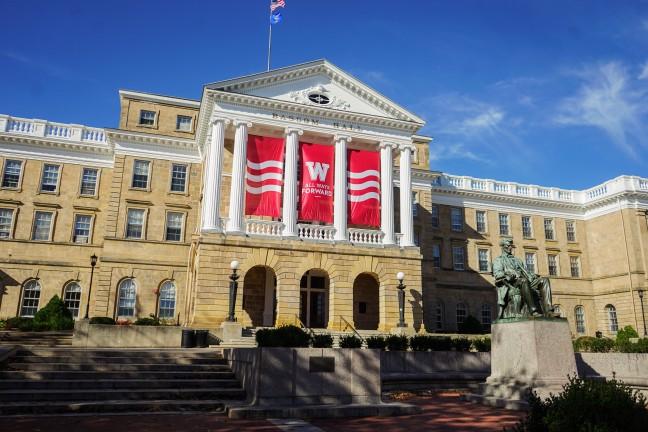Diversity. Equality. Allies. Inclusion.
These are some of the buzzwords Brittany Packnett, vice president of national community alliances for Teach for America, said have lost their value.
At a panel titled “The Urgency of Now: Perspectives on Leading for Social Change,” experts from all over the country flew in to discuss how to make meaningful social change and address disparities in access to education.
At the Wednesday panel, Packnett kickstarted the discussion describing the use of certain buzzwords people commonly use, but of which they do not understand the true meaning.
“If ‘diversity’ doesn’t mean anything anymore, it’s not because the word lacks value but because we promoted the stock-photo version of it,” Packnett said.
Packnett said concepts like diversity appear to be functioning well in the “bigger picture,” but educators are “far from that” if someone were to actually analyze them.
For instance, she described universities including one person of color on a college brochure to promote “diversity” and attract people from that group. But when people in that group actually came to college, they found themselves excluded and in a minority .
When such intergroup disparities are amplified, it impacts how individuals perform in school, Walter Bond, Teach for America Milwaukee executive director, said.
Right now, 127,000 school-age children live in Milwaukee, but only 15,000 are able to receive an education. Bond attributed this difference to the lack of action from institutions in charge.
“We’re at a low point and we can’t get lower,” he said. “Our institutions are not working for the people who they’re supposed to.”
Emphasizing the importance of history, Sasānēhsaeh Pyawasay, diversity coordinator for the College of Science and Engineering at the University of Minnesota, said creating meaningful change starts when a person truly thinks about the significance of buzzwords and other relevant ideas in their lives. This involves understanding how the need for change came about in the first place.
Otherwise, people are “doomed” to repeat their past mistakes, she said.
Pyawasay said once people know what needs to be changed, they need to act upon it.
“Words are meaningless without action to it,” Pyawasay said. “You need to ask yourselves what do you mean by this [word] and what does it mean to you?”
Arturo Diaz, organizational development specialist at the University of Wisconsin Multicultural Student Center, said he believes change starts from within an individual. People need to explore, self-reflect and create space for new experiences.
Packnett encouraged others to get out of their comfort zone and learn the value of making sacrifices no matter how difficult it may seem.
Pyawasay said UW must modify its Wisconsin Idea in a way that motivates people in positions of privilege to help those who are unlike them. People need to understand their freedom cannot be granted unless absolutely everyone is free, she added.
That, Packnett said, will happen when people work together.
“Service in solidarity creates permanent change and that should be our service and that should be our Wisconsin Idea,” Packnett said.


